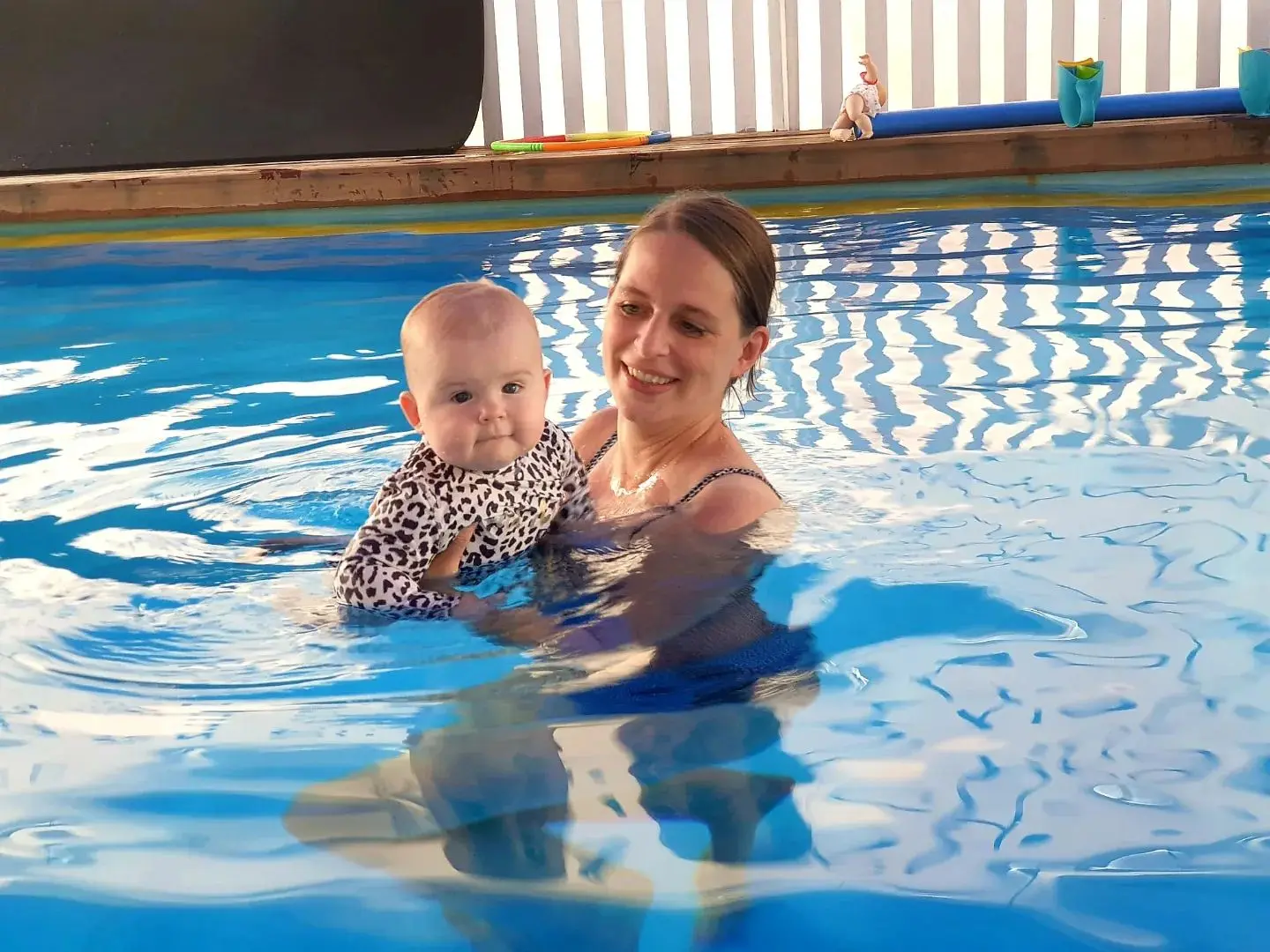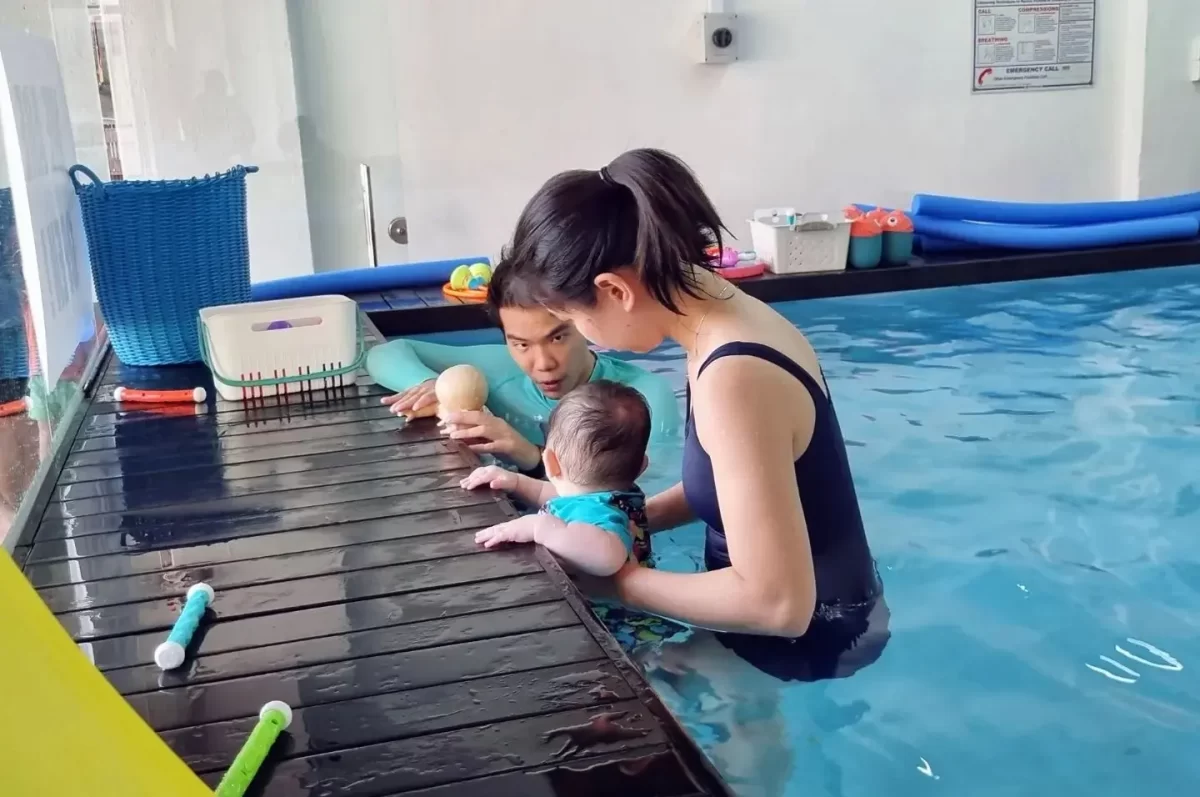In the journey of early childhood development, few experiences rival the transformative power of introducing infants and toddlers to the wonders of water. The importance of cultivating water confidence in these formative years extends far beyond the aquatic realm, influencing physical, cognitive, and emotional facets of a child’s growth.
At the heart of this developmental adventure are baby swim classes, purposefully designed to be more than just splashes and giggles. These swimming lessons serve as invaluable tools, carefully crafting an environment where water becomes a source of joy, learning, and essential life skills.
Importance of Water Confidence in Early Childhood Development
Water confidence in early childhood plays a pivotal role in fostering a range of developmental aspects in children. Exposure to water activities from a young age not only promotes physical health but also contributes significantly to cognitive and emotional well-being. The aquatic environment provides a unique sensory experience that aids in the development of various fundamental skills. Moreover, building water confidence early on can instill a positive attitude towards physical activity, setting the stage for a lifetime of enjoyment and fitness.
Beyond the physical benefits, water confidence also enhances a child’s cognitive abilities. Engaging in water activities helps improve spatial awareness as children learn to navigate and orient themselves in a three-dimensional space. The sensory stimulation provided by water play contributes to the development of a child’s neurological pathways, fostering cognitive growth. This early exposure to different sensations in a safe and controlled environment can have lasting effects on a child’s overall sensory processing capabilities.
Emotionally, water confidence is closely linked to a child’s self-esteem and social development. Participating in swim classes encourages bonding between the child and their parents or caregivers. The supportive and nurturing environment of a swim class provides an opportunity for positive interaction, building trust and reinforcing the child’s emotional security. Additionally, overcoming challenges in the water fosters a sense of accomplishment, boosting a child’s confidence and resilience.
Baby Swim Classes as a Tool for Building Water Confidence
Baby swimming lessons in Singapore serve as a structured and guided approach to building a strong foundation in developing water confidence in infants and toddlers. These classes are specifically designed to cater to the unique needs and developmental stages of young children, creating a safe and enjoyable environment for their introduction to water. Experienced instructors with expertise in early childhood aquatic education play a crucial role in guiding both the child and their parents through the learning process.
The baby classes typically focus on a combination of physical activities, games, and bonding exercises. They often begin with gentle water immersion, gradually acclimating the child to the aquatic environment. Techniques such as floating exercises, supported by parents or instructors, enhance the child’s buoyancy and motor skills. Water play and engaging activities, often accompanied by songs, make the experience enjoyable, creating positive associations with water from an early age.
Importantly, baby swim classes emphasize the incorporation of water safety skills and basic water skills. These skills not only build water confidence but also contribute to the child’s overall safety in and around water. The combination of a nurturing atmosphere, skilled instruction, and purposeful activities makes baby swim classes a holistic approach to instilling water confidence in the formative years of a child’s life.
Activities and Techniques Used in Baby Swim Classes

Baby swim classes employ a variety of carefully crafted activities and techniques to facilitate the gradual development of water confidence in infants and toddlers. These activities are designed to be age-appropriate, ensuring that they cater to the unique needs and capabilities of each child. The goal is not only to make the experience enjoyable but also to foster the acquisition of fundamental water skills in a safe and supportive environment.
Introduction to Water
Gradual Water Immersion
The classes often begin with a gentle introduction to water, allowing babies to become accustomed to the sensation of being in an aquatic environment. Instructors may start with activities like pouring warm water over the baby’s hands or letting them splash in shallow water, creating a positive association with water from the very start.
Gentle Water Play
Water play is a central component of baby swim classes. Through carefully designed water activities, babies are encouraged to explore the aquatic environment playfully. This may include activities such as blowing bubbles, playing with floating toys, or simply experiencing the gentle flow of water against their bodies.
Floating and Buoyancy Exercises
Holding Techniques
Instructors teach parents and caregivers specific holding techniques that provide support while allowing the baby to experience buoyancy. These techniques not only help babies feel secure in the water but also contribute to the development of their motor skills as they learn to move their arms and legs in response to the water’s resistance.
Use of Floatation Devices
Age-appropriate floatation devices may be incorporated to enhance buoyancy and stability. These devices are carefully selected to provide support without compromising the child’s safety, allowing them to experience a sense of independence and freedom in the water.
Water Games and Songs
Incorporating Play for a Positive Experience
Playful activities, such as singing water-themed songs, playing interactive games, and using colorful toys, are integrated into the classes. These activities not only make the experience enjoyable but also contribute to the child’s overall development by enhancing their cognitive and sensory skills.
Building Trust and Comfort in the Water
Games that involve gentle movements and interactions with parents or caregivers help build trust and a sense of security. As the child associates water with positive experiences and the presence of a trusted adult, their confidence in the water grows.
The combination of these activities and techniques creates a well-rounded approach to building water confidence in babies. Each element is carefully planned to cater to the developmental needs of the child, ensuring a positive and progressive introduction to the aquatic environment. Through these activities, baby swim classes not only enhance water confidence but also contribute to the holistic development of the child in a safe and enjoyable setting.
Dive into a World of Confidence and Skill: Embark on Your Swimming Journey at Marsden Swim School!
Are you ready to embrace the countless benefits of swimming? Take the first step towards a lifetime of aquatic enjoyment, safety, and fitness by enrolling in swimming lessons at Marsden Swim School, the only swim school that meets the Gold Standard AUSTSWIM.
Our renowned swim programs are crafted to cater to diverse needs, ensuring a personalized learning experience that suits your pace and comfort level. Whether you’re a complete beginner or looking to refine your swimming techniques, our expert swim instructors are dedicated to guiding you through every splash.
Join our vibrant community, where learning to swim is not just a skill — it’s an empowering journey that builds confidence, fosters safety awareness, and unlocks the joy of swimming. Dive into the exceptional world of Marsden Swim School and discover the transformative power of making waves in your life! Contact us and embark on your swimming journey with us today!


